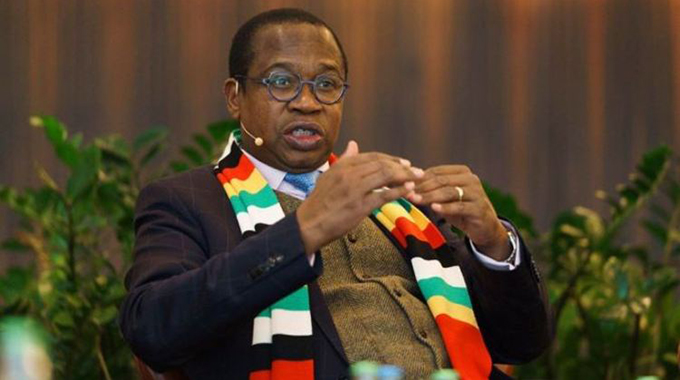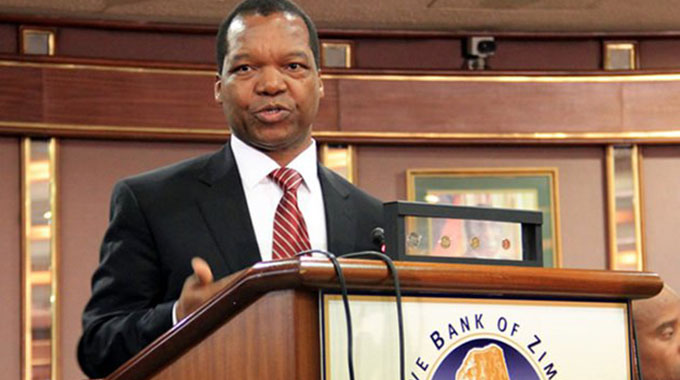Zim to deepen ties with Chinese funders

Golden Sibanda Senior Business Reporter
ZIMBABWE says it will continue to explore ways of deepening economic and financial ties with China’s Sinosure and China Eximbank on the back of the Asian economic giant’s ever-growing profile as world leader in foreign direct investment (FDI).
Already, bilateral trade between Zimbabwe and China continues to scale new heights, which saw trade between the two countries exceeding the $1 billion mark in 2018, while the two countries are also working on further increasing their trade and investment cooperation for mutual economic benefits.
Several Chinese investors have set up base in Zimbabwe across sectors of mining, agriculture (tobacco) and manufacturing while China and the world’s largest stainless steel producer, Tsingshan, is in the process of setting up operations.
Zimbabwe and China this year upgraded their relationship from all-weather friends to comprehensive and mutually beneficial strategic partnership while President Xi and President Mnangagwa committed to consolidate economic cooperation.
Finance and Economic Development Minister Professor Mthuli Ncube said he had recently met with officials from Sinosure and China Eximbank to apprise them of the ongoing reforms under the Transitional Stabilisation Programme (TSP) (2018-2020) given the investment and support rendered to Zimbabwe. The minister met with Mr Wang Tingke, the vice chairman of Sinosure in Beijing.
“We discussed Zimbabwe’s economic reform progress and projects that are funded through Sinosure,” he said.
The China Export Credit Insurance Corporation (Sinosure) is a Chinese State-funded insurance company established to support the oriental giant’s trade development and cooperation overseas. The Treasury chief also met with the chairman of China Eximbank, Mde Hu Xiaolian, in Beijing and discussed progress on projects funded by China Eximbank, and the TSP reform agenda.
China Eximbank provides various financial products and services in China. It offers exports seller’s credit; export buyers’ credit; import credit; and preferential and mixed loans from foreign governments and financial institutions to the Chinese government.
Prof Ncube said that there was nothing extraordinary about his recent visit to China other than maintaining and strengthening relations and exploring opportunities for further cooperation.
“These are normal engagements with partners in China. The Chinese are investing everywhere around the world; they are biggest investors in Europe, Eurasia and US in terms of buying US Treasury Bills.
“So, we are engaging them in the way everyone is engaging them, why? Because they are a source of foreign direct investment, source of trade, market and so forth, so that is what we are doing.
“Sinosure has been a supporter financially for some of the projects in Zimbabwe, so has China Eximbank; it has been a funding platform for some of the projects as well,” the finance minister said.
Major investments by Chinese investors in Zimbabwe, including the US$533 million Kariba South extension, US$1,4 billion Hwange Power Station extension programme and US$150 million (each) Harare and Victoria Falls airports expansions, were supported by Sinosure and China Eximbank.
There have also been reports that Sinosure, which guarantees China’s outbound investments, at one point took the decision to scale down support for local investments over long-standing arrears, a situation President Mnangagwa’s administration has since resolved.
“So, we want to engage them further so that we can do more; so that we understand each other better. It’s normal, it is about managing these relations because we have benefited, but they have also benefited we have to pay them back. It is a financial relationship, it’s always good to maintain that and strengthen it,” Minister Ncube said.
Zimbabwe is one of the countries that are set to benefit under the Belt and Road Initiative, a global development strategy adopted by the Chinese Government involving infrastructure development and investments in 152 countries and global organisations in Asia, Europe, Africa, the Middle East, and the Americas.











Comments